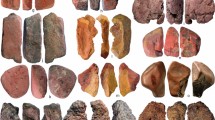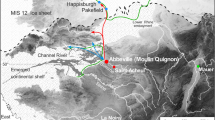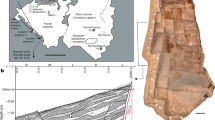Abstract
THROUGH the kindness of Mr. E. J. Wayland, of the Geological Department, Entebbe, Uganda, I have become acquainted with an important discovery, made by him in Uganda, of a considerable number of large quartzite implements of rostro-carinate and Early Palæolithic types. Mr. Wayland has asked me to publish my opinion of the cultural relationship of the specimens, of which he sends me drawings, to the beak-shaped implements found beneath the Red Crag of East Anglia, and I may say at once that there would seem to be little doubt that the latter, though possibly more ancient, are clearly “related” to the East African artefacts.
This is a preview of subscription content, access via your institution
Access options
Subscribe to this journal
Receive 51 print issues and online access
$199.00 per year
only $3.90 per issue
Buy this article
- Purchase on Springer Link
- Instant access to full article PDF
Prices may be subject to local taxes which are calculated during checkout
Similar content being viewed by others
Author information
Authors and Affiliations
Rights and permissions
About this article
Cite this article
REID MOIR, J. The Discovery of Large Quartzite Implements of Rostro-carinate and Early Palæolithic Types in Uganda. Nature 107, 649–650 (1921). https://doi.org/10.1038/107649a0
Issue Date:
DOI: https://doi.org/10.1038/107649a0
Comments
By submitting a comment you agree to abide by our Terms and Community Guidelines. If you find something abusive or that does not comply with our terms or guidelines please flag it as inappropriate.



